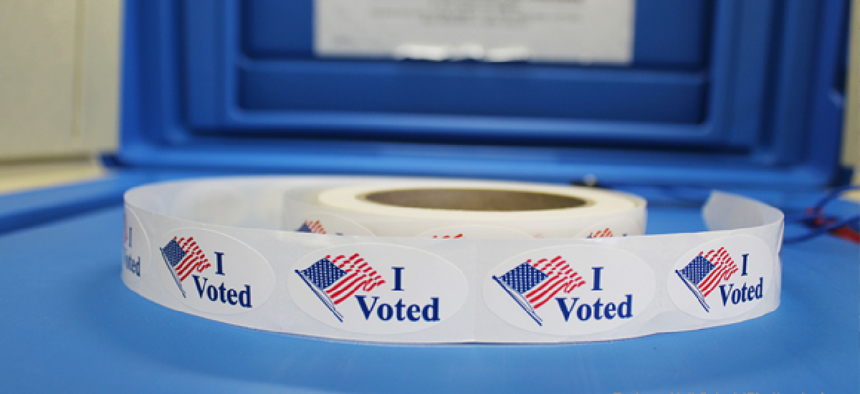Congress blocks election security funds for states, again


Connecting state and local government leaders
Although Senate Democrats tried to add funding for states and localities to upgrade the security of their election systems, the measure was defeated.
Although Senate Democrats tried to add hundreds of millions of dollars in grant funding to states and localities to help them upgrade the security of their election systems, Republicans successfully defeated the measure.
An amendment to “minibus” appropriations legislation introduced by Sen. Patrick Leahy (D-Vt.) would have allocated $250 million in federal funding states could use to replace outdated and insecure voting machines, provide security training for election workers, upgrade voter registration software and fund other initiatives related to election security.
The amendment was opposed by Sen. James Lankford (R-Okla.), one of the original co-sponsors of the Secure Elections Act that initially proposed grant funding to states. He said he was opposing the measure because Congress had already voted in favor of giving $380 million to states earlier this year and he wants to wait to see how the first round of dollars is spent before considering additional funding.
Those funds were zeroed out of next year’s appropriations by the House, leading to outcries from Democrats who said more money is needed.
“I believe it is far too early to add another quarter billion dollars … when we don’t know how the first $380 million has even been spent, and the Intelligence Committee did extensive research on how much was needed and [determined] the $380 million amount was what was needed at the time,” Lankford said.
In a follow-up statement after the vote, Lankford provided additional details behind his concerns.
“Those upgrades have not occurred, been verified, nor have new state election cyber standards been implemented,” he said. “We must consider requests for additional funding after those things have happened, not before.”
A majority actually voted in favor of the measure, 50-47, but it was unable to overcome a 60-vote threshold needed to overcome a filibuster. Sens. John McCain (R-Ariz.), Jeff Flake (R-Ariz.) and Richard Burr (R-N.C.) were not present to vote. All Democrats voted in favor, while all Republicans save Sen. Bob Corker (R-Tenn.) voted against.
On the floor, Leahy repeated a line that many Democrats have employed, saying the initial $380 million was woefully short of what election security experts say is required to shore up the most vulnerable aspects of the nation’s election system.
"That [$380 million] was the first new funding for election security in years, but more is needed,” Leahy said. “The president is not going to act, the duty has fallen to us. Let’s not after an election find out that this country was defenseless against attacks from Russia and say, 'Oh, gosh, we should have done something.'"
Some organizations focused on voting policy, like the Brennan Center for Justice, have argued that the money provided by Congress represents only a fraction of the amount needed to fully wean states off of paperless voting machines and implement other improvements. Last week, the Department of Homeland Security's top cyber official charged with coordinating election security with states told the House Oversight Committee that an additional boost in spending is needed to address outstanding vulnerabilities.
“There is a requirement to update systems across the board,” said Christopher Krebs, undersecretary for the National Protection and Programs Directorate. “Whether that comes from the state or the federal government, I don’t have an official opinion on that. It is going to take money, we are going to have to identify where the risk is and we’re going to have to focus money on that risk.”
This article was first posted to FCW, a sibling site to GCN.




